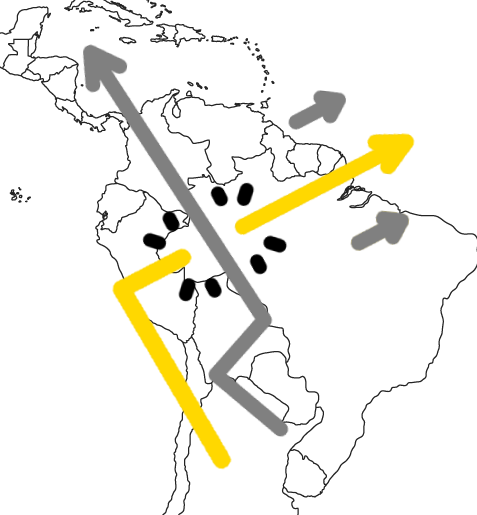
Since its “discovery,” Latin America has played an ambiguous role in the Western imaginary. Unlike “the Orient,” Africa or Oceania, the macroregion has been regarded by both Europeans and Americans as rather "backward" than as radically different (Lomnitz 2001:127). The course aims to identify the structural conditions and tackle the strategies that have encouraged and challenged Latin America's divergent integration under the global condition. Following the introductory sessions, which will discuss the relationship between Global, Area Studies, and Latin American academic production, we will deal with “time-spaces of globalization”: regional and transregional orders established through colonization, nineteenth-century independence movements, and Latin America’s positions in the twentieth-century global conflicts. The second block will focus on “actors of globalization.” By looking at political movements and international organizations coming from and intervening in the macroregion, we will thematize discourses and theories of dependency and global governance from a multidimensional perspective. The selected readings on global markets of violence, migration, and transnational communities will allow us to address the orders and disorder of globalization. The third block will introduce central debates driven by critical global and Latin American scholarship to bring the discussion to a conceptual level. Following the arguments of transformative global studies, we will revisit the concept of coloniality, alternatives for decolonizing knowledge, the possibilities and limits of the “global south” as a conceptual apparatus.
The joint reading and discussion of case studies and conceptual explorations aim to provide an overview, which will allow students to identify divergences, interconnections, and parallels within the subcontinent and concerning other regions. Furthermore, the critical treatment of political and academic discourses endeavors to stimulate reflection on the impact of power asymmetries on both globalization and the knowledge produced about it.
- Trainer/in: Agustina Carrizo de Reimann
- Trainer/in: europast europast